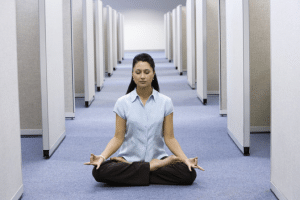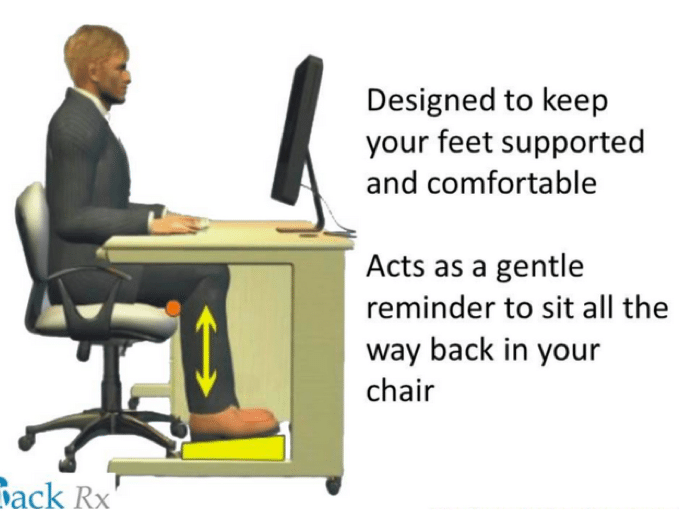
But those measures are just the first step.
Recently corporate research firm PSFK detailed 3 common three devices that foster an even healthier, more happy and productive office culture.
1. Personal climate trackers
Get rid of those blankets and sweatshirts you haul to the office in the summer when the air conditioner transforms your cubicle into a miniature arctic zone. And while you’re at it, toss the dusty old desktop fan that blows paperwork all over the floor. Wearable personal climate trackers can help us better regulate the temperature and humidity of office spaces. Here’s how PSFK explains them:
“Personalized heating and cooling system reduces office energy costs, and avoids those inevitable hot or cold spots in the office. This also ensures that meeting rooms are always a comfortable temperature for everyone, and provides an additional ease to move about the office.
One tool is CliMate, a weather and temperature tracker that clips onto a shirt or bag, or sit on a little stand. The device, released last year, senses humidity, UV exposure and temperature and feeds the information live to a smartphone. Users can then adjust the temperature or open a window in the space. CliMate sells for $55 on Amazon.
Excessive humidity, UV and temperature (HUT) damage goes way beyond the skin-deep,” the device’s creators wrote last year on Kickstarter, where they successfully raised money to manufacture CliMate. “It negatively affects your health through illness and allergies, your mood and often times even your work performance and personal life.”
2. Wellness reminders
Wellness trackers are all the rage these days. People use devices like FitBit and Apple Watch to monitor physical activity and keep on track toward fitness goals. However, if sit at a desk all days, it’s often challenging to remember to get out of that chair and walk around. That’s where wellness reminders come in handy.
There devices are sometimes as simple as a clip that hooks onto your chair and vibrates every 30 minutes, offering a helpful prompt that it’s time to go for a walk. These can also sync with an app to help the user track overall fitness. Again, as PSFK writes:
“Traditional office spaces demand long periods of physical inactivity and can dull worker creativity and emotional well-being. To mitigate these issues, companies should disrupt the sedentary desk-work routine and infuse mobile activity. An inconspicuous desktop addition would help employees to get up, destress and stimulate their minds to maximize positive thinking and output.”
Other workers prefer a desk itself that reminds the worker to get up and move. Companies like Stir, a Los Angeles-based standing desk startup have developed this very technology. According to their research of workplace habits, nearly 70% of people with height-adjustable desks simply leave the desk in the sitting position. To address that, the company designed a desk that subtly rises up and down to alert the user when it’s time to stand. The desk comes equipped with app-compatible software to helps set and monitor fitness goals. The one downside is that it sells for upward of $3,000, though there are cheaper models out there.
3. A good old-fashioned footstool
This one almost seems too simple to miss. Small ergonomic adjustments can make a significant difference. It’s true that hybrid desks and ergonomic seating are important factors for promoting a healthy workplace; yet without adaptability that encourages the desk user to stand throughout the day, it’s common for employees to simply remain in their chair for hours at a time. A footstool encourages better habits by improving posture and regular movement.
A large variety of under-the-desk footstools are available to. Here’s a breakdown of the simple ergonomics involved in their use:




